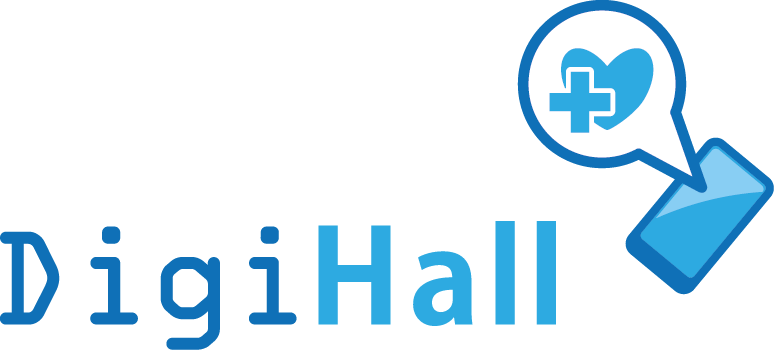What is DigiHall about?
L’obiettivo di DigiHall è rafforzare l’alfabetizzaizone sanitaria digitale delle persone in terza età.
I caregiver formati all’interno del progetto li introdurranno a ciò che viene offerto nel campo della salute, in modo che le persone in terza età possano farne un uso ottimale. Per i fromatori, il progetto prevede lo sviluppo di una piattaforma di apprendimento online e di un’app sulla digitalizzazione e la salute, con l’aiuto delle quali potranno acquisire conoscenze sia di tipo contenutistico che didattico.
Domande
What does the abbreviation DHL stands for?

Do you think that the percentage of people (aged 16-74) who searched for health information online in 2020 lays between...
a) 10-30 percent
b) 30-40 percent
c) 40-70 percent
in Germany, Greece and Italy?

Take a look at the abbreviation/ projects name DIGIHALL.
What could be the aim and topic of the project?

What do you think is the reason why people over 65 might not use digital health technologies?

What do you think is an informal caregiver and how many percent of the caregivers in Germany and Greece are informal?

What do you think that “digital health technologies” include?

Which of the following health technologies do already exist in Germany?
a) A database where personal health data, such as, treatments, medications, allergies and more can be stored in a uniform manner.
b) Electronic prescription: There is the possibility
to receive prescriptions from the doctor in electronic form and to transfer them directly to the health insurer
c) A website of the local pharmacy where you can order medicines online and have them delivered

How many percent of Europeans aged 16-74 had basic digital skills in 2021?

Think of the most prevalent physical obstacles for older people concerning accessing e-health

Which obstacles and problems can occur if you want to search for health information online?

Notizie sul progetto
Partenariato





Finanziato dall’Unione europea. Le opinioni espresse appartengono, tuttavia, al solo o ai soli autori e non riflettono necessariamente le opinioni dell’Unione europea o dell’Agenzia esecutiva europea per l’istruzione e la cultura (EACEA). Né l’Unione europea né l’EACEA possono esserne ritenute responsabili.

